Civil Liberties, Criminalizing Dissent, Human Rights, Surveillance, Truth to Power
Podcast: Play in new window | Download
Updates:
———-
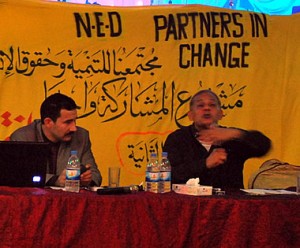
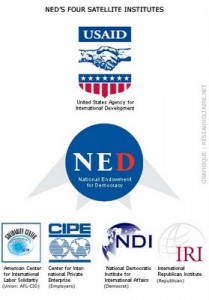
Egypt Places Travel Ban On US Citizens: NDI / IRI and Freedom House
Egypt Places Travel Ban and Charges Against US Citizens Working With NDI / IRI and Freedom House In the last few weeks, the military backed Egyptian government has targeted the National Democratic Institute, the International Republican Institute and Freedom House–U.S. government funded groups working in Egypt. These groups have often come under attack as tools of US foreign policy. For example the IRI was blamed for playing a role in the coup against President Aristide of Haiti. As part of its crackdown, the Egyptian authorities raided the offices of some of these organizations and brought charges against at least 16 US citizens, six of whom remain in Egypt.
Three of them including the son of the US Transportation Secretary, Sam LaHood have taken refuge at the US embassy. They’re cases have been referred to criminal courts in Egypt. Recently, Egypt refused to back down despite a US threat to cut aid. We bring you two perspectives on the NDI/IRI and the charges against them. Paul Sullivan from the National Defense University raises serious questions as to whether these US funded organizations should be in Egypt at all. Then, Sally Sami, a human rights activist, is unwilling to be as critical presumably because she sees the crackdown as past of a larger crackdown on democracy advocates in Egypt even if NDI and IRI are not playing a constructive role.
Professor Paul Sullivan:
- Essentially these NGOs are not registered in this country. There was an NGO law in 2002 that required these NGOs to register.
- These NGOs state they did put in the documents to register and they didn’t hear anything back and assumed everything was going well.
- They’re also unlicensed. That is also true.
- They’re funded by the US government. The required duties is to train people in exactly what voting is, what is democratic development.
- One of the charges that has been leveled against them is paying political certain parties and of course both these groups deny it. Freedom House, the third one involved also denies it.
- There are certain charges that neither the IRI or the NDI deny.
- The emotions are very high, and the issues are becoming more hardened on both sides.
- When Mubarak was in charge, these organizations were in a wink and a nod were allowed to be in the country.
- Now some of the NGOs that had nothing to do with anything political are now having a difficult time even on the streets of Egypt.
- There has always been a certain degree of anti-Americanism in Egypt. This is starting to stoke anti-Egyptian sentiment on the Hill and in the public. . .many of whom don’t understand Egypt as people who’ve live there, such as I understand Egypt, really quite wonderful people.
- It’s much more important to build friendships, to build relations, to help them get jobs. Investment, education, and human development, and leave the politics to the country.
Guest – Professor Paul Sullivan, professor of economics at the National Defense University (NDU) since July 1999. He is an Adjunct Professor of Security Studies and Science, Technology and International Affairs at Georgetown University, where he teaches classes on global energy and security, energy security in the Middle East, and natural resources and conflict in Africa and the Middle East. Dr. Sullivan was the Vice President, Programs, for the United Nations Association, National Capitol Area, where he was a strategic leader and adviser for the many programs and committees run by UNA-NCA during June 2010 to June 2011.
——
We get another perspective on the ground in Cairo, Egypt. Sally Sami, former director with the Cairo Center for Human Rights Studies and human rights activist.
Sally Sami:
- We’re talking about a moment, a time when the essence of the revolution itself is being stolen.
- We see a revolution that is being arrested, attacked, harassed.
- It seems like we’re being punished for taking the stand, for continuing it to be outspoken about the violations that are taking place, even after the revolution.
- One of the worst attacks was during a Christian protest, and people were killed enmass, we’ve seen this becoming more and more frequent.
- The continued denial of taking the responsibility to the protect the lives of Egyptians.
- We want it clear that should not be any double standards, its a human rights thing, ok? There shouldn’t be any double standards.
- Some countries deserve human rights, some don’t, it depends on the concept of national security, until now we don’t know what it means.
Guest – Sally Sami, former director with the Cairo Center for Human Rights Studies and human rights activist.
——————————————————————
Civil Liberties, FBI Intrusion, Human Rights, Supreme Court, Surveillance, Truth to Power
Podcast: Play in new window | Download
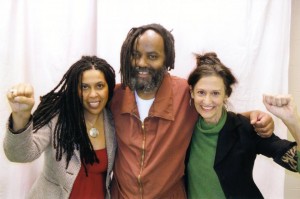
Heidi Boghosian Updates on Mumia’s Visit
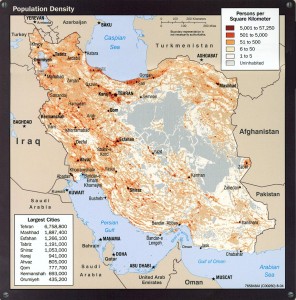
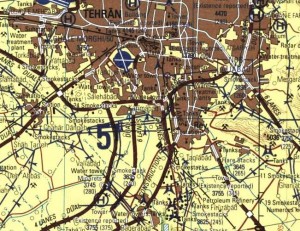
Iran: Sanctions and Syria
Israel and the United States continue to assert that Iran is enriching uranium to make nuclear weapons. As we’ve recently reported, the main stream media has followed lock step with this assertion by printing false claims and half truths about Iran’s nuclear facilities. Hinged on these false assertions, and baseless assumptions, sanctions are now being imposed by the EU and the United States against Iran.
Phyllis Bennis:
- The escalation of rhetoric, having nothing to do with reality, is boxing in a incredibly dangerous situation, in which political leaders are boxing themselves into situations they can’t walk back from.
- It’s a little bit different than the weapons of mass destruction, when you had leading neocons in those positions, in the pentagon, in the CIA, saying there is no question, there are WMDs.
- They were all lying. The difference here is that the key people in these positions are saying directly we don’t even know whether Iran has even decided in this case to build a nuclear weapon.
- At the same time, they’re allowing this unquestioned ratcheting up of the rhetoric for purely political motivations.
- We’re seeing the same situation in Israel.
- The main factor right now is Israel. The US Congress, the US press, are responding to these false claims from Israel that Iran represents an existential threat.
- The role of the Israeli lobbies is an old story.
- Republicans are saying Obama is soft on Iran. In that context an election year there’s no way that President Obama is going to be willing to walk back from this escalating rhetoric that we heard right before the superbowl on Sunday night.
- I’m always astonished when I hear it from anybody, that after the war in Iraq, after the war in Afghanistan people somehow still have the idea that you can just go in with a few air strikes and that’ll be all it takes.
- There are inspectors on the ground, they’re watching 24/7 video from inside the enrichment centers.
- If Iran wanted to the divert the enriched uranium for weapons purpose, they would have to kick out the inspectors, or slash the locks that the inspectors put in, either way the world would know about it within hours.
- War with Iran, should be off the table.
- I don’t think its inevitable. I think its 70/30 right now. Meanwhile, nobody’s going to think about pressuring Israel on the issue of Palestine.
- There ha’ve been 5 high profile assassinations of Iranian nuclear scientists.
- Syria: On the one hand you have an incredibly repressive regime, responding to a domestic uprising with amazing horrifying levels of force. And parts of the resistance taking up arms in response.
- Syria is a strategic ally of Russia. For Russia that is the most important thing.
Guest – Phyllis Bennis, director of the New Internationalism Project at the Institute For Policy Studies. She is also a fellow of the Transnational Institute in Amsterdam. Phyllis has been a writer, analyst, and activist on Middle East and UN issues for many years. In 2001 she helped found and remains on the steering committee of the U.S. Campaign to End Israeli Occupation. Phyllis is also the author of many books including Understanding the US-Iran Crisis: A Primer (2009).
—–

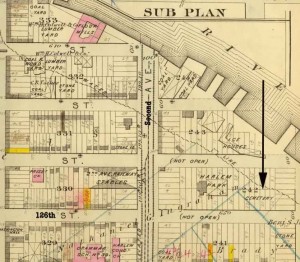
3 Year Evaluation of the Obama Administration
The Obama Administration has expanded wars abroad from Iraq, Afghanistan, Pakistan, Yemen and Libya. It’s continued and expanded detention policies for Guantanamo Bay prisoners and US citizens. Wall Street and big banks have been bailed out and the Healthcare bill was used a bargaining chip for insurance companies. The cautious optimism that progressives and the African American community initially had for the Obama Administration is long gone. However, there were some that were never taken in or mesmerized by the possibility of hope. Our guest today, Nellie Hester Bailey calls this administration a browner hue of imperialism and asks how long can people be herded like sheep into this nightmare of compromise. We welcome her back to the show, she’s a long time human rights activist from early organizing with the Student Non-violent Coordinating Committee, to tenant rights and anti-war demonstrations, to advocacy on behalf of women, Bailey has been at the forefront of social justice and social change organizing. We look back at the last 3 years of the Obama Administration and take a look ahead.
Nellie Hester Bailey:
- President Barack Obama, he is a gatekeeper for imperialism.
- They chose him to be their standard bearer for this new era of redefined politics down to this humanitarian intervention I think has proven to be the worst of any forboding that in fact in goes beyond the right wing politics of President Bush.
- Sidetracking OWS: This new movement Occupy the Dream making it an extension of the Democratic Party. This cooptation process is in full throttle.
- One would hope that this Occupy Wall Street above all would retain its independency.
- 2008 Presidential Election: Extremely promising because it gave the appearance of the attempt of the government to face head on the entrenched and historic racism in this country.
- A very powerful symbol of the a black family in the Whitehouse and what that would mean in the public consciousness on race here in America.
- Once Barack Obama was elected president to the US, it did give rise to a paralysis of the movement.
- What we saw with the advent of the Occupy movement was the stimulation of white America to fight back against the anti-working class measures coming down.
- The Occupy movement was our own Arab Spring, if you will by the communities coming under increasing assault.
- There is a direct action working group within the Occupy Wall Street movement that recently announced it was laying out a six month plan of action.
- One would hope that would be independent of the Democratic Party.
- The conditions on the ground have began to organize people and effect their consciousness.
- I do not believe that capitalism can be reformed.
- We need a new political paradigm that is founded on principles of humanity, on principle of respect to the environment, an anti-war principle, the respect of sovereign nations.
- Radio Show: Inside Housing on WHCR 90.3 FM. Mondays 6-7PM – The Voice of Harlem.
Guest – Nellie Hester Bailey, is a human rights activist who has worked in peace and justice movements for over forty years. From her early organizing with the Student Non-violent Coordinating Committee, to tenant rights and anti-war struggles, to advocacy on behalf of women Bailey has been at the forefront of social justice and social change organizing. Bailey co-founded the Harlem Tenants Council (HTC) in 1994. She currently serves as Director of the tenant led grassroots organization based on the self-determination tradition of radical activism that provides anti-displacement organizing for poor and working class families primarily in Central Harlem.
————————————–
Civil Liberties, Criminalizing Dissent, Guantanamo, Habeas Corpus, Human Rights, Surveillance, Targeting Muslims, War Resister
Podcast: Play in new window | Download
Updates:
——-
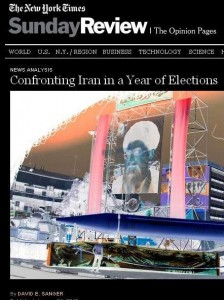

Weapons of Mass Destruction Part 2: Iran
Similar to accusing the Iraqi government for stockpiling weapons of mass destruction as a pretext for a military invasion, Israeli and US intelligence assert that Iran is bent on becoming a nuclear weapons state by enriching uranium. This narrative as many listeners know has been going for many years In the New York Times article titled Confronting Iran In A Year of Elections, New York Time’s chief Washington correspondent David Sanger platforms his article on the assumption there is evidence Iran is making nuclear weapons. We talk today with Professor Bill Beeman author of The “Great Satan” vs. the “Mad Mullahs”: How the United States and Iran Demonize Each Other. Beeman has criticized the New York Times and other media for falsely claiming there is evidence Iran is developing nuclear weapons. He also points out that Iran has a right to enrich uranium for peaceful purposes and that their facilities are monitored by the International Atomic Energy Agency.
Professor William Beeman:
- First of all its very important to understand there is no evidence anywhere that Iran has a nuclear weapons program. Every report from the IAEA has reaffirmed that Iran has not diverted any nuclear material for military purposes, including the last report in November 2011.
- The news media, especially the New York Times, I must tell you has distorted the IAEA report in order to make it seem as if Iran is building nuclear weapons.
- We have no evidence to the contrary.
- The New York Times article written by an Israeli journalist not only has actually attracted hundreds and hundreds of objections. Because of its war mongering tone and because it contains a lot of inaccuracies.
- Clapper claims Iran is most likely to attack the United States based on the incident that took place a few months ago.
- There are some countries like Japan that have said outright that they intend to develop the capacity to construct nuclear weapons. Iran has said it doesn’t intend to do this.
- The United States is not coming after Japan. . or Brazil which has issued a similar statement or any of the 20 countries that don’t have weapons but are now enriching uranium.
- When Colin Powell went before the United Nations saying Iraq had weapons of mass destruction I wrote a column saying its simply not true.
- That got me on the Bill O’Reilly show where I had a big arguement with him about this.
- I said simply show us the actual proof.
- My feeling at the time was that Colin Powell had been badly misused by the Bush administration in order to sell a false picture of what was actually going on in Iraq.
- Iran was given uranium many years ago during the time of the Shah to use in a medical reactor to develop isotopes for the treatment of cancer.
- Every scrap of uranium that they’ve been working with is under inspection.
- The IAEA is watching the process as it goes on every day.
- They say if Iran wants to wipe Israel off the map they’re probably going to use nuclear weapons.
- The joke is of course we knew Iran was enriching uranium, because we started the enriching program 40 years ago.
- The idea that it was carried out in secret, quite frankly revealed the extraordinary ignorance of the Bush Administration.
- They have a continual drum beat to attack Iran. The aim is not to stop Iran’s nuclear program because Iran’s nuclear program is anemic. The aim is regime change.
Guest – Professor William O. Beeman, Professor and Chair of Anthropology and specialist in Middle East Studies at the University of Minnesota, Minneapolis-St. Paul Minnesota, formerly of Brown University. It includes current publications on Middle Eastern affairs, especially Iran, Iraq, Afghanistan and the Persian Gulf region; anthropology; linguistics; performance; opera; things Japanese and Central Asian.
———————————————–
Civil Liberties, Criminalizing Dissent, Guantanamo, Habeas Corpus, Human Rights, Political Prisoner, Surveillance, Targeting Muslims, Torture, Truth to Power
Podcast: Play in new window | Download
Updates:
- Michael Smith visits political prisoner David Gilbert and discusses David’s book Love and Struggle.
- Genocide Bill Angers Turks – It Was Genocide Radio Documentary by Heidi Boghosian
- Supreme Court: GPS Tracking Device Illegal
- Lizzy Ratner Co-hosts Beyond the Pale on WBAI
—
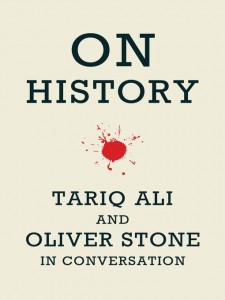
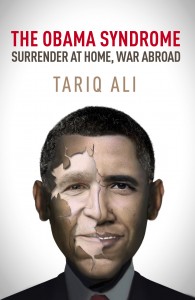
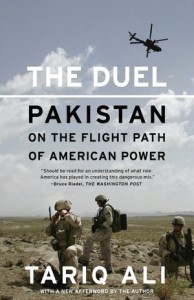
Tariq Ali: Turning Points in the History of Imperialism
Today we’re joined by internationally renowned writer and activist Tariq Ali. Tariq is visiting from London where he is editor of the New Left Review.
A writer and filmmaker, Tariq has written more than 2 dozen books on world history and politics, including The Duel: Pakistan on the Flight Path of American Power, The Obama Syndrome and On History. We talk specifically about several turning points in global history, the Occupy movement and US elections. .
Tariq Ali:
- The think the first World War was crucial but it wasn’t the war itself it was the consequences of that war. Here you had huge empires.
- The Russian revolution challenged capitalism frontally and its leaders said we want Europe to be with us, on our own we can’t do it. We need the Germans, we need a German revolution. That frightened the capitalist class globally.
- Woodrow Wilson, decided that the time had come to intervene. 22 countries came to intervene.
- This intervention made it impossible for the early infant Soviet Union to achieve what it wanted to achieve.
- The Second World War was an effort by the German ruling class to get its share of the world market in countries.
- The US helped rebuild Japan and Germany. They helped build France and Britain by the Marshal Plan and that has never been done by a big imperial power before.
- They managed to get the Soviet Union to implode by having an arms race. The Russians fell into their trap and decided to go for the arms race, had they not history might have been different.
- I hope the Chinese do not fall into the same trap, threatened by Obama’s puny little bases in Australia.
- People, early settlers in the United States got land totally free and they took it and that created the belief in the American psyche of private property.
- The Soviet Union imploded because the people lost faith in the system.
- The entire elite in the United States and Western Europe is wedded to the Washington consensus that emerged after the collapse of communism. The center piece of this consensus was a system which believed in market forces. I refer to it as market fundamentalism.
- We are confronting the extremism of the center and the result of this is no alternatives exist within mainstream politics. The effect that this is having is hollowing out democracy itself.
- Occupy: What we need is for these movements to call an assembly nationally and discuss a charter of demands for progressive America which need only be ten demands but something around which people can rally. I think its a movement that should be created bearing what the needs of ordinary people are.
- In order to understand the laws of motion of capital, you have to read Marx. It’s true capitalism has become much much more complex. Zombie capitalism, or fictitious capitalism, where money is used to make more money.
- It’s not money that’s creating productive goods.
- I had written a book on South American because I got very engaged in the Venezuela-Boliverian struggle and got to know Chavez very well.
- If Americans had access to Cuban medicine, the pharmaceutical companies would collapse, they would never let it happen.
Guest – Tariq Ali, writer, journalist and film-maker, born in Lahore and educated at Oxford University. He writes regularly for a range of publications including The Guardian and The London Review of Books. He has written more than a dozen books including non-fiction as well as scripts for both stage and screen.
———————————
Civil Liberties, Criminalizing Dissent, Habeas Corpus, Human Rights, Torture, Truth to Power
Podcast: Play in new window | Download
Updates:
- Heidi Boghosian: Mumia Abu-Jamal Update
- Support Mumia Here
- Michael Smith: Occupy Chicago Tribune Lawsuit Is On
- Michael Ratner: Tenth Anniversary of Guantanamo Prison: Cage Prisoners
- Movie: Death In Camp Delta
- Iranian Scientist Murdered: Mossad, CIA, ISI
- Covert War Against Iran
- Michael Ratner Speaks At Occupy London About Bradley Manning Case
- Julian Assange Extradition
- Judge Goes Forward With Investigation Of Guantanamo Torture Cases
- UK Transferring People To Qaddafi To Be Tortured
—
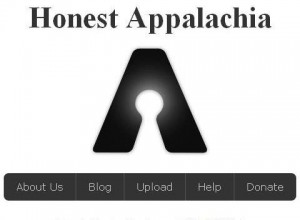
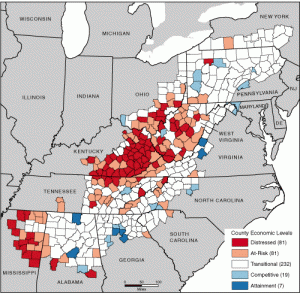
Newly Launched Whistle Blower Site – Honest Appalachia
Activists in Virginia have launched a website appealing to whistleblowers wanting to reveal evidence of corporate and government wrongdoing. The site is called honestappalachia.org, it uses a security technology to protect citizens who upload documents and it keeps their identity hidden if there’s legal action. Inspired by Wikileaks, honestapplachia is a low cost model that can be adapted by others worldwide.
Jimmy Tobias:
- The site is meant to be a resource for whistle blowers, that allows them to anonymously upload documents to our site. We will take those documents and vet them, and distribute them to journalists.
- SOPA is definitely a risk to transparency and whistle blower resources on the web.
- You go on our site, and you read our submission guide which is a step by step.
- The guide will tell you to download TOR. A simple piece of software which routes your activity through servers across the world, which essentially makes your activity anonymous.
- Your IP address basically gets lost in the crowd. We will never know who you are uploading to our site.
- We also encrypt the documents we receive.
- We have information on our site where others can take our open source software and use 80 percent of it.
- Our project is focusing outreach in Ohio, Pennsylvania, West Virginia, Kentucky, Tennessee, North Carolina, Virginia, also includes Georgia and South Carolina.
- We’re really hoping to receive documents about wrongdoing at the state and local level of government, from corporations in the region.
- Appalachia is a very industrialized region but its also very rural.
- We were funded with a grant from the Sunlight Foundation.
- Generally there’s a lot of cozy relationships in the states, between industry and government.
- We’re focusing on a broad array whether they’re coal or gas companies, banks, zoning boards, state and local governments, anything that could engage in corruption at the expense of the public.
Guest – Jim Tobias, activist and direct action protester.
—-













